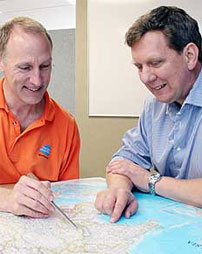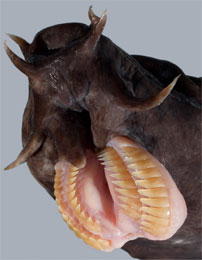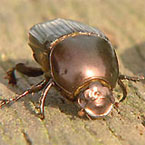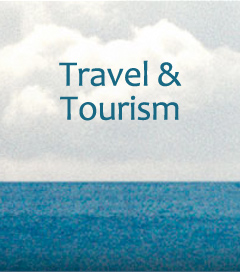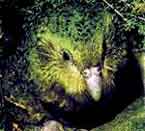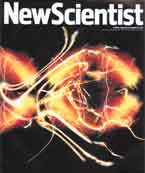Nature | New Scientist
10 December 2021
For more than a century, scientists have wondered whether New Zealand’s huge carnivorous Haast’s eagle, that went extinct around 600 years ago, was more of a predatory eagle or a gut-raiding vulture. Now we…
Nature | New Scientist
27 September 2017
The flightless nocturnal kiwi may be evolving to lose its eyesight altogether, suggest researchers. The blindness was discovered during a study of 160 Okarito brown kiwis (Apteryx rowi) in the South Island’s Okarito forest….
Nature | New Scientist
11 December 2015
Entomologists from the University of Auckland have found that harvestmen, Pantopsalis cheliferoides, which live in the wet forests of the North Island, are the first animals found to have different types of weapon in…
Theatre | Journal (The) | New Scientist
8 August 2014
New Zealand electrician Carlos Van Camp will brighten the skies over the River Tyne in Newcastle with man-made lightning strikes as part of the Great North Run event.
The Great North Run Million Opening Ceremony…
Science/Tech | New Scientist
16 August 2013
After testing some 200 volunteers in Auckland, Richard Newcomb of the New Zealand Institute for Plant & Food Research (PFR) and his colleagues have found the most convincing evidence yet of a…
Politics and Economics | New Scientist
21 June 2013
Under proposed laws, New Zealand will permit the limited sale of some designer drugs for recreational purpose; the legislation is the first in the world to regulate new recreational drugs based on scientific evidence…
Science/Tech | New Scientist | World Bank | Xinhua News
8 December 2011
Massey University has received $5 million from the World Bank to develop an on-line project which will fight animal-borne diseases that can transmit to humans, such as bird flu and rabies, in South Asia….
Nature | New Scientist
30 November 2011
Without any human intervention, the Argentine ant — the world’s most invasive species — is disappearing from New Zealand. The alien ant arrived in New Zealand in 1990 and has since marched across our…
Nature | New Scientist
27 October 2011
Te Papa scientist Vincent Zintzen and colleagues have been studying the hunting behaviour of the hagfish — or snot-eel — a blind sea creature partway between fish and worm, with a spinal cord but…
Agriculture | New Scientist
18 February 2011
New Zealand has approved the release of 11 Australian species to manage a massive heap of livestock dung. Manure accounts for around 14 per cent of New Zealand’s emissions of nitrous oxide, a powerful…
General | New Scientist
6 October 2010
An international study on cultural stereotypes, led by the US National Institutes of Health, has concluded that there is no relation between supposed cultural characteristics and the actual traits identified in real…
General | New Scientist
6 October 2005
An international study on cultural stereotypes, led by the US National Institutes of Health, has concluded that there is no relation between supposed cultural characteristics and the actual traits identified in real people. “People…
Science/Tech | New Scientist
30 June 2005
The powerful, curling waves that draw surfers to beaches will soon be breaking inland, thanks to a novel shape-shifting rubber reef that can be fitted to the floor of a swimming pool. The Versareef,…
Science/Tech | New Scientist
23 March 2005
Hamilton inventor and former chemical engineer, Brian Goggin, is seeking patents in NZ, the US, Japan, and Europe for a reinforced metal fuel tank which vents hydrogen gas safely in the event of an accident. The innovation…
Nature | New Scientist
10 November 2004
New scientific evidence reveals that humans may not be entirely responsible for the extinction of the moa. According to research undertaken in NZ and the US, there were 3 to 12 million moa roaming the forests…
New Zealand | National Geographic | New Scientist
4 March 2004
According to New Scientist, NZ is one of few countries actively promoting responsible eco-tourism. National Geographic clearly agrees, awarding NZ 78 points out of 100 in its annual eco-tourism survey. “The NZ Department of Conservation takes these…
Science/Tech | New Scientist
19 December 2003
According to research undertaken at Auckland University, silver cars are significantly less likely to be involved in a serious crash than vehicles of other colours. Sue Furness, who led the study, suggests that this “may be…
Politics and Economics | CNN News | New Scientist
2 October 2003
NZ was ranked 15th happiest nation overall in a World Values Survey of over 65 countries – ahead of the US (16th), Australia (20th) and the UK (24th). The study is a global examination of sociological…
Science/Tech | New Scientist | Washington Times
11 July 2003
Canterbury University psychologist Satoshi Kanazawa lumps men of scientific brilliance and criminals in the same psychological boat, claiming that both dwindle in the creative stakes post-35 – typically sapped by marriage! Kanazawa gathered the ages of 280 scientists…
Science/Tech | New Scientist
15 May 2003
New Scientist profiles the work of Canterbury University psychologist Bruce Ellis, who has recently published a study on the effects of absentee fathers on teenage girls. Ellis has monitored 700 girls from pre-school to high-school, in an…
Science/Tech | New Scientist
26 January 2003
NZ scientists have genetically modified cows to produce high-protein milk for the country’s cheese industry. The altered protein-levels would allow cheese-makers to produce more of their product from the same quantity of milk, and at a significantly…
Science/Tech | New Scientist
26 January 2003
NZ scientists at the Ruakura Research Centre in Hamilton in a radical innovation have genetically modified cows to produce high-protein milk for the country’s cheese industry. The altered protein-levels would allow cheese-makers to produce more from the…
Nature | New Scientist
13 December 2002
NZ’s possum epidemic has made unlikely bed-fellows of environmentalists and fur-trappers. New Scientist looks at a globally unique situation, where groups such as WWF actively support the trapping of an animal for its fur and meat as…
Medicine/Health | New Scientist
14 September 2002
Challenging the common assumption that reproduction is a random process, Auckland University’s Valerie Grant claims to be able to predict whether a woman is more likely to produce male or female offspring via a “personality test.” By…
Nature | New Scientist
1 June 2002
New Scientist features the Kakapo’s claw-back from the brink of extinction: “What’s green, nocturnal, looks like an owl, smells sweet and fruity, and makes strange noises from growls and “skrarks” to metallic “chings” and deep resonant…
General | New Scientist
25 November 2000
The Kiwi vowel slur might be a solidarity mechanism, adopted to make late-arriving, open-vowel enunciating Poms feel uncomfortable. Give us fush or give us duth.
Science/Tech | New Scientist
28 October 2000
Deleted files may come back to haunt you, says Peter Gutmann of Auckland University. “It is possible to install a computer that overwrites data when you hit the Delete key, making it much harder to recover….
Medicine/Health | BBC News | New Scientist
9 June 2000
Kiwi research team Rex and Christine Munday claimed in New Scientist magazine that eating half a clove of raw garlic a day could help protect against cancer. They believed the key ingredient was a substance called…
Nature | New Scientist
22 April 2000
Ecologist Elissa Cameron at Massey University has found that older mothers make better mothers simply because they use their time more efficiently – or at least mares do. The discovery was made in a study of…
Science/Tech | New Scientist
8 April 2000
Do gestures help us find the right word, or is there a deeper meaning? Michael Corballis from the University of Auckland studied primates and children to find the answer to why we can’t keep our…
Science/Tech | New Scientist
1 April 2000
Making the cover of the April New Scientist, New Zealand researchers at the University of Canterbury believe they have solved the mystery of one of nature’s oldest puzzles – ball lightning – a mysterious floating light…












